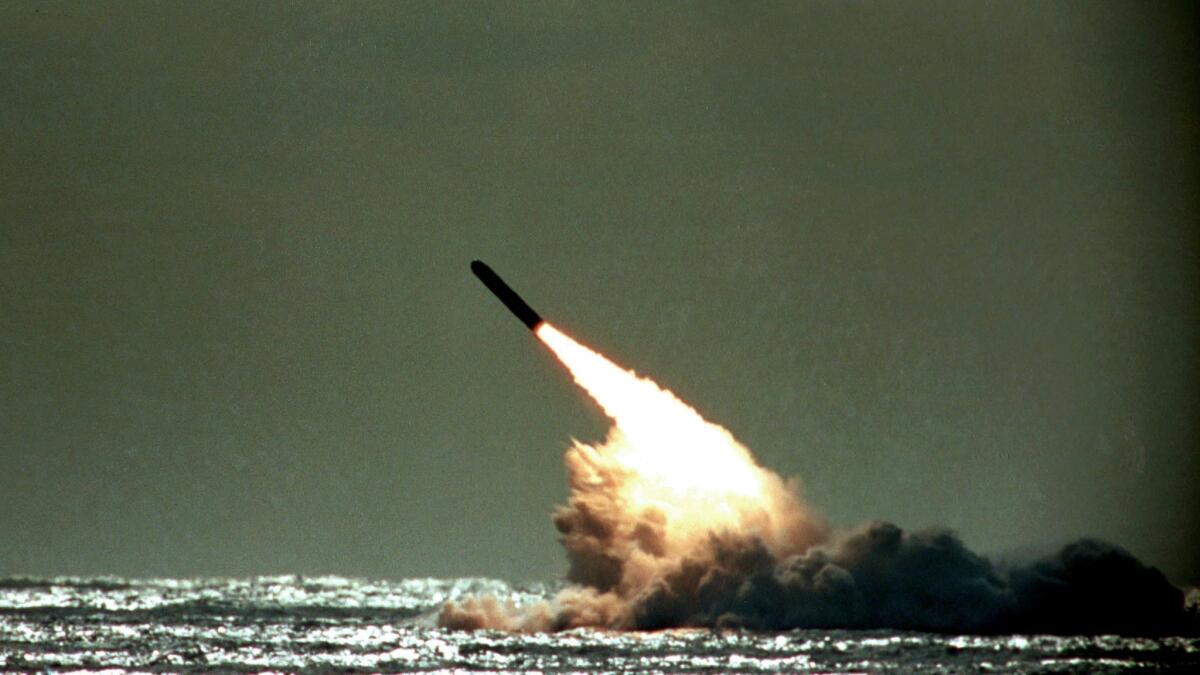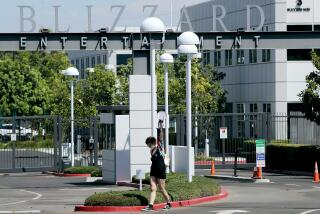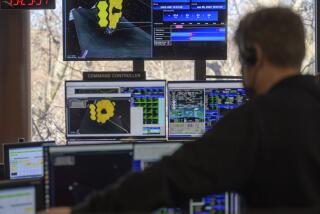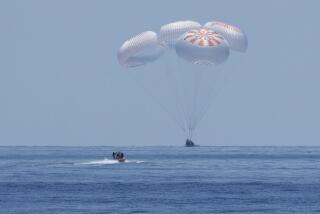Lockheed will move 650 missile jobs away from Sunnyvale

Lockheed Martin will move 650 jobs in the legendary Trident missile program from Sunnyvale, Calif., to other states, the defense contractor said Thursday.
The affected employees work for the Fleet Ballistic Missile Program, which designs and engineers nuclear missiles for the nation’s submarine fleet.
“We value the deep expertise of our employees, and we’re working diligently to shape a transition that leverages the knowledge of this team,” said Rick Ambrose, executive vice president, Lockheed Martin Space Systems. “Reshaping our Fleet Ballistic Missile Program will help us take full advantage of our engineering and manufacturing facilities and centralize key skills, saving costs for the Navy on this critical national security program.”
The fleet missile program is tied primarily to the Trident 2 missile, successor to the Trident missile, which was first deployed in 1979. The Trident 2 was deployed in 1990.
“The submarines are one part of the nation’s nuclear deterrence triad,” said Matthew Kramer, a Lockheed Martin spokesman. The other elements of the triad are airborne and ground-based nuclear missiles.
The employee shifts from Sunnyvale to Lockheed sites in Florida and Colorado are due to be completed by 2024.
“When these moves are completed, we will still have 4,200 employees in Sunnyvale,” Kramer said.
The Sunnyvale-based operations, in addition to fleet ballistic missiles, include a missile warning satellite for the Air Force, an ultrasecure communications satellite for the Air Force, a secure mobile communications satellite for the Navy, a solar array factory that produces solar panels for orbital satellites, and engineering and development support for a high-altitude missile defense program.
Lockheed also has an Advanced Technology Center in Palo Alto that conducts cutting-edge research regarding satellites.
Lockheed founded its first Sunnyvale facilities in 1956 and has been working on the Trident missile program with the Navy for 60 years, the company said.
The workers affected by the relocation will be given the opportunity to shift to the new offices in the other states.
“It’s a combination of engineers who work on engineering and design of the missile systems, propulsion, electronics, and there are employees who work on missile maintenance and tests,” Kramer said.
MORE BUSINESS NEWS
The luxury housing that Measure S would stop doesn’t actually require many evictions
J.C. Penney to close 130 to 140 stores and offer early retirement to 6,000 workers
U.S. stocks rally to set another record after slow start due to investor jitters
More to Read
Inside the business of entertainment
The Wide Shot brings you news, analysis and insights on everything from streaming wars to production — and what it all means for the future.
You may occasionally receive promotional content from the Los Angeles Times.










